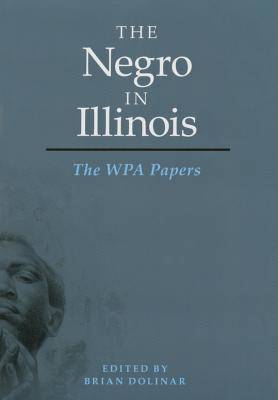
- Retrait gratuit dans votre magasin Club
- 7.000.000 titres dans notre catalogue
- Payer en toute sécurité
- Toujours un magasin près de chez vous
- Retrait gratuit dans votre magasin Club
- 7.000.0000 titres dans notre catalogue
- Payer en toute sécurité
- Toujours un magasin près de chez vous
Description
A major document of African American participation in the struggles of the Depression, The Negro in Illinois was produced by a special division of the Illinois Writers' Project, one of President Roosevelt's Works Progress Administration programs. The Federal Writers' Project helped to sustain "New Negro" artists during the 1930s and gave them a newfound social consciousness that is reflected in their writing. Headed by Harlem Renaissance poet Arna Bontemps and white proletarian writer Jack Conroy, The Negro in Illinois employed major black writers living in Chicago during the 1930s, including Richard Wright, Margaret Walker, Katherine Dunham, Fenton Johnson, Frank Yerby, and Richard Durham. The authors chronicled the African American experience in Illinois from the beginnings of slavery to Lincoln's emancipation and the Great Migration, with individual chapters discussing various aspects of public and domestic life, recreation, politics, religion, literature, and performing arts. After the project was canceled in 1942, most of the writings went unpublished for more than half a century--until now. Working closely with archivist Michael Flug to select and organize the book, editor Brian Dolinar compiled The Negro in Illinois from papers at the Vivian G. Harsh Collection of Afro-American History and Literature at the Carter G. Woodson Library in Chicago. Dolinar provides an informative introduction and epilogue which explain the origins of the project and place it in the context of the Black Chicago Renaissance. Making available an invaluable perspective on African American life, this volume represents a publication of immense historical and literary importance.
Spécifications
Parties prenantes
- Editeur:
Contenu
- Nombre de pages :
- 336
- Langue:
- Anglais
- Collection :
Caractéristiques
- EAN:
- 9780252080937
- Date de parution :
- 01-02-15
- Format:
- Livre broché
- Format numérique:
- Trade paperback (VS)
- Dimensions :
- 191 mm x 250 mm
- Poids :
- 598 g

Les avis
Nous publions uniquement les avis qui respectent les conditions requises. Consultez nos conditions pour les avis.





